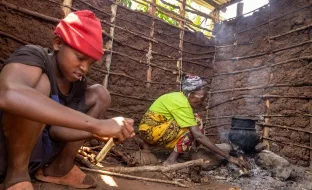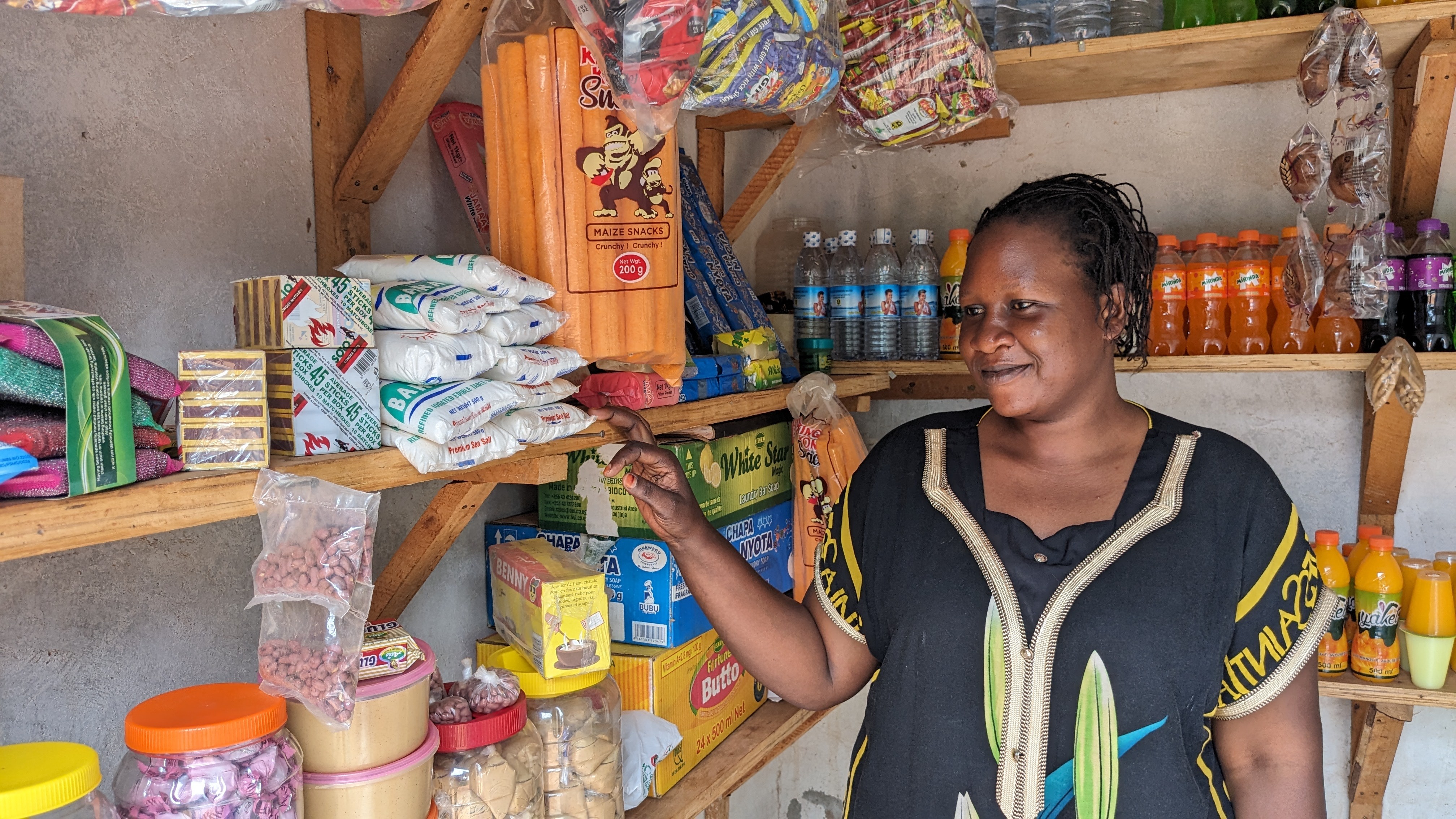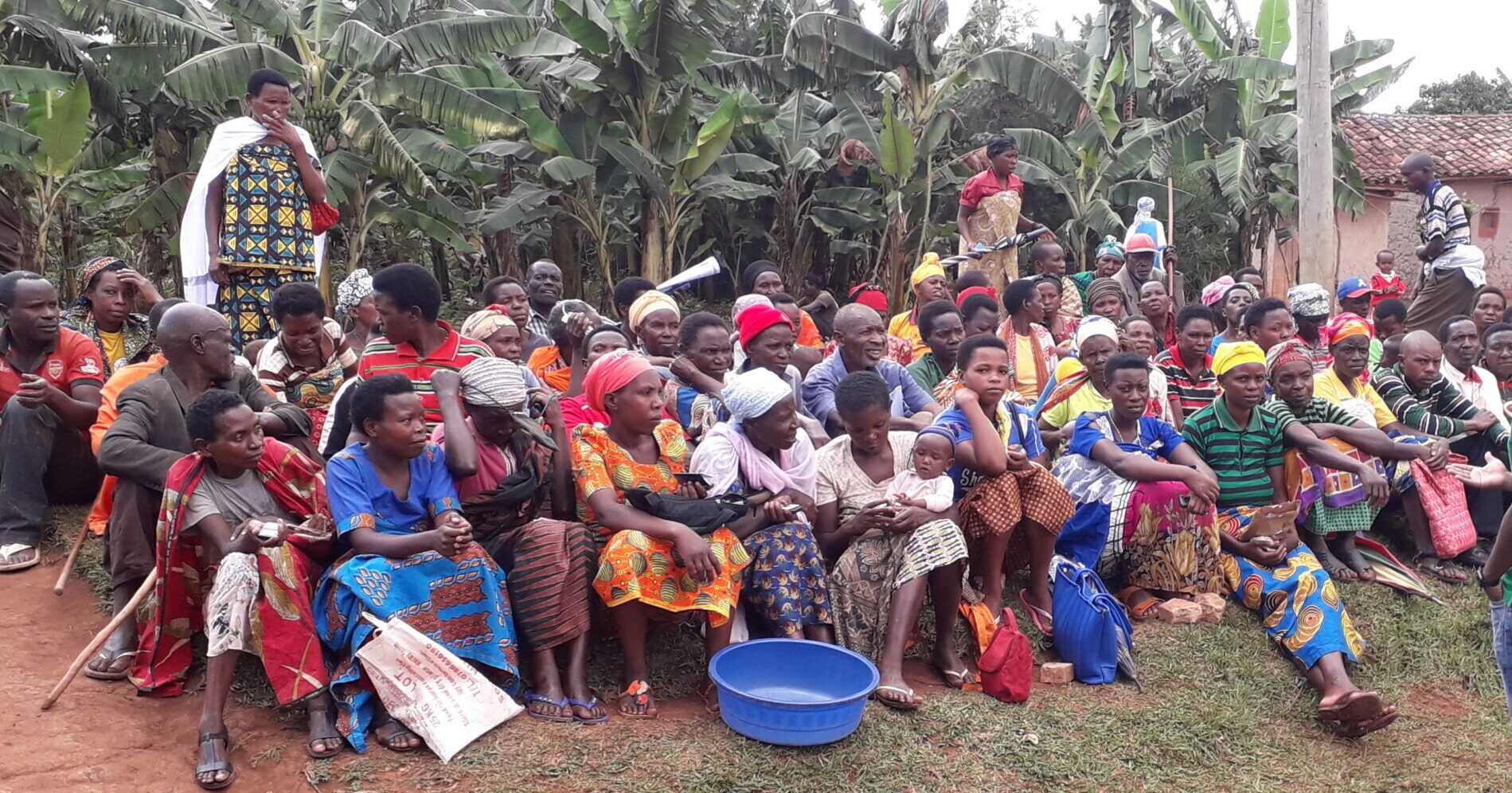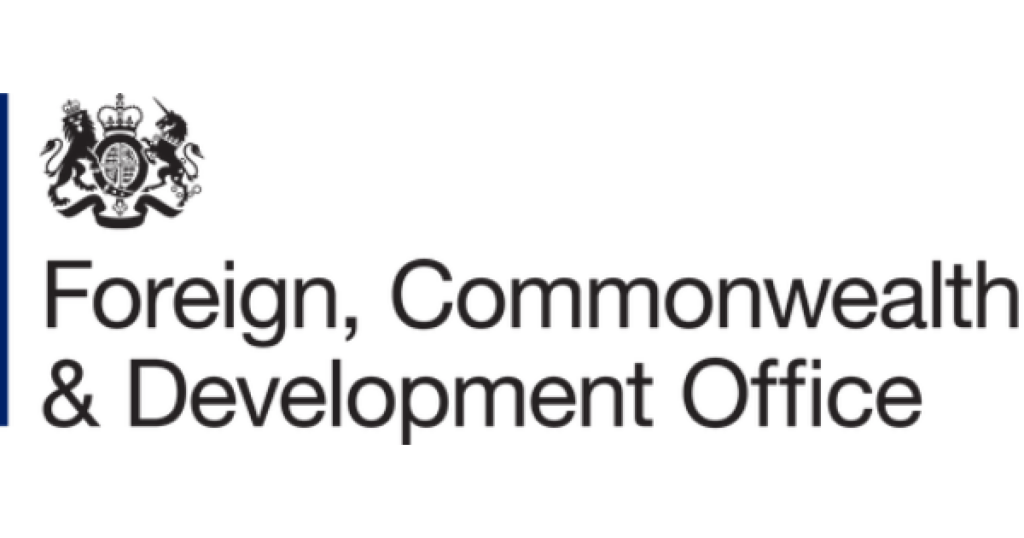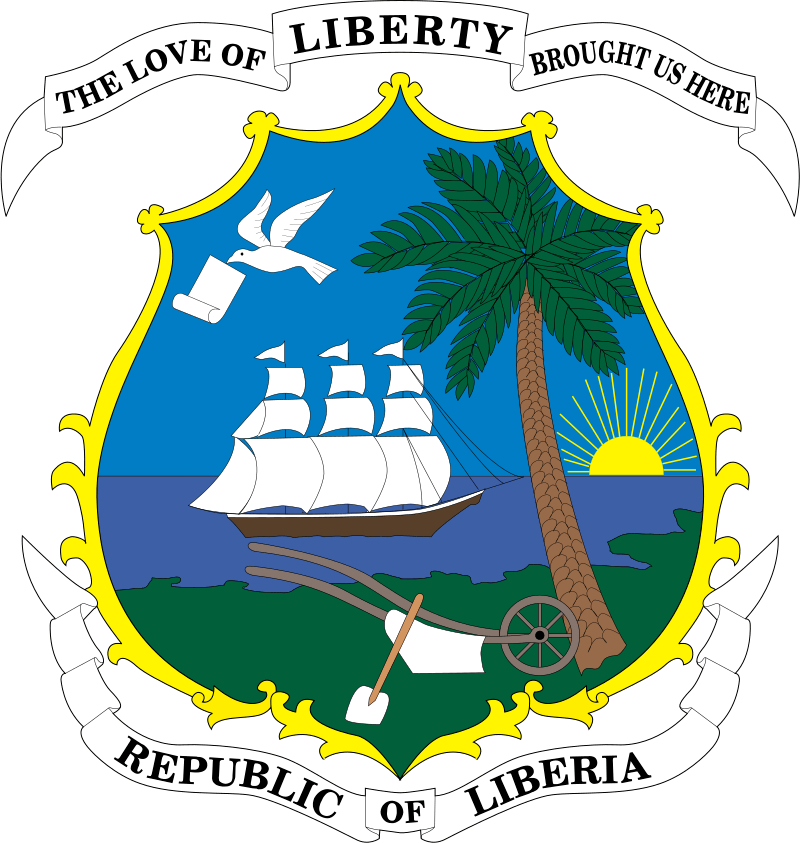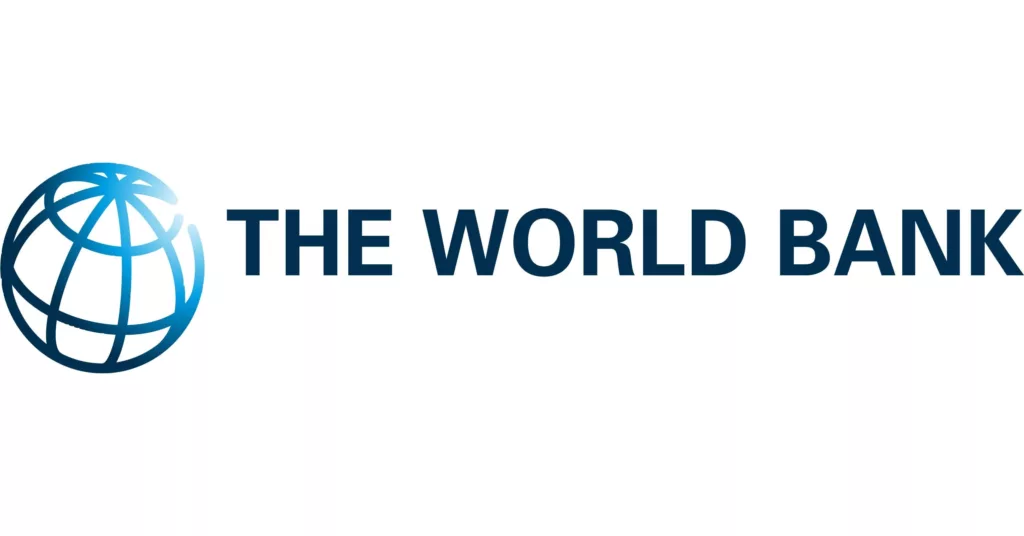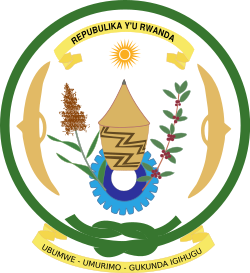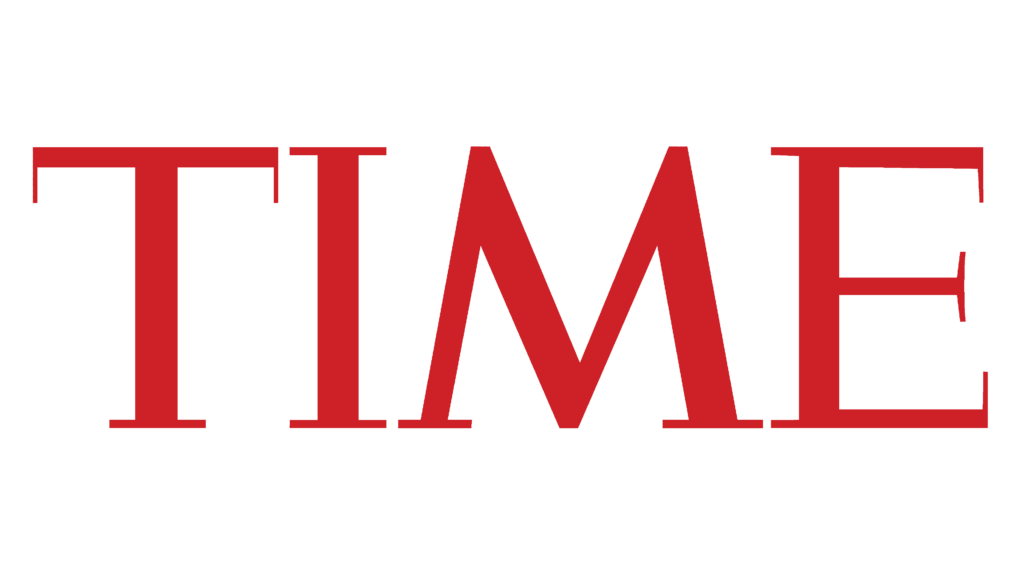
We’ve focused on improving government relations, refining our ability to respond to crises, and expanding to new continents.
Program Spotlights
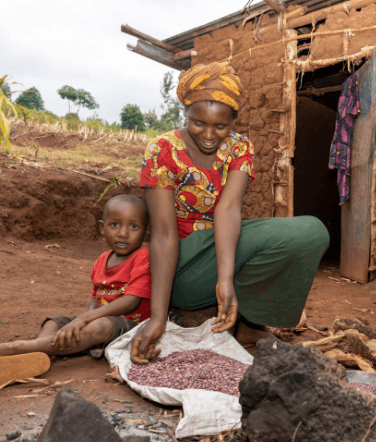
Scaling Transfers for Extreme Poverty (STEP)
We’ve started delivering payments in our two largest programs to date. Across both Rwanda and Malawi, STEP (Scaling Transfers for Extreme Poverty) is a critical program in our goal of lifting everyone in a single country out of poverty.
Outcomes
Our aim with this program is to demonstrate that cash works at the largest scale. If we can prove cash’s effects can be sustained at the national level, we think the largest institutional funders will be persuaded to allocate more of their budgets to effective cash programming.
Transfer Size
$550
Households Reached
- Rwanda: 12,196 enrolled
- Malawi: 10,490 enrolled
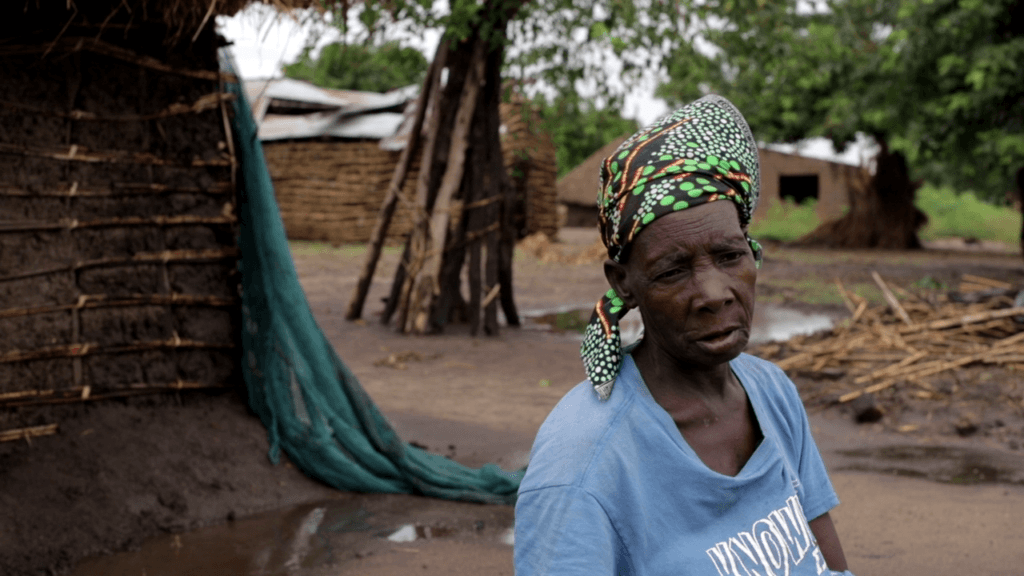
International Crisis Response
As a growing number of those experiencing poverty become concentrated in humanitarian contexts, we’ve invested in our ability to respond to crises around the world rapidly.
- Turkey: we reached Syrian refugee micro-entrepreneurs and low-income workers in the hardest-hit regions of Turkey (Hatay, Adana, Gaziantep, Sanliurfa) to help them recover from the devastating earthquakes.
- Morocco: within days of the earthquake striking, we launched a campaign to help families living in the highest levels of poverty that were affected by the devastation.
- Mozambique: the country experienced a record-breaking cyclone in 2023. With Google Research and the government of Mozambique, we launched a pilot to use AI-driven flood forecasting to remotely enroll recipients and send payments three days before flooding.
Outcomes
We’ll use the learnings from these responses to inform future program designs. Also, with climate risk affecting more and more of the extreme poor, these models could serve as templates for the rest of the aid sector to build on, with the goal of reaching some of the world’s most vulnerable populations.
Transfer Sizes
- Turkey: ~$621
- Morocco: ~$200
- Mozambique: $225
Households Reached
- Turkey: 1,107
- Morocco: pre-enrollment
- Mozambique: 4,183
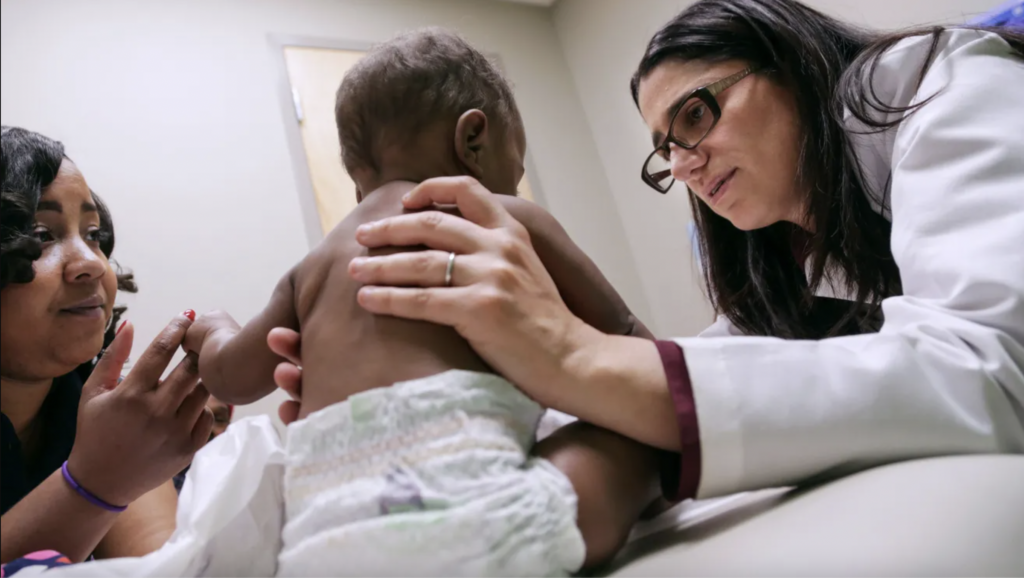
Tailored Programs
In Flint, Michigan, where nearly 70% of children live below the poverty line, we’re sending cash to every expectant mother starting in January 2024. We’ll deliver each mother a one-time lump sum, followed by 12 monthly payments during their infant’s first year of life.
Outcomes
A significant body of evidence shows that cash transfers to moms improve the health of both mother and child. Multiple studies have found positive impacts of cash and cash-like interventions on birth weight, preterm births, breastfeeding, parental mental health outcomes, and food security. Poverty Solutions at the University of Michigan will support evaluation and policy efforts, with the goal of ultimately influencing local and national governments to adopt more cash-based assistance.
Transfer Size
$1,500 upon enrollment; $500 monthly payments
Households Reached
~1,200 in 2024
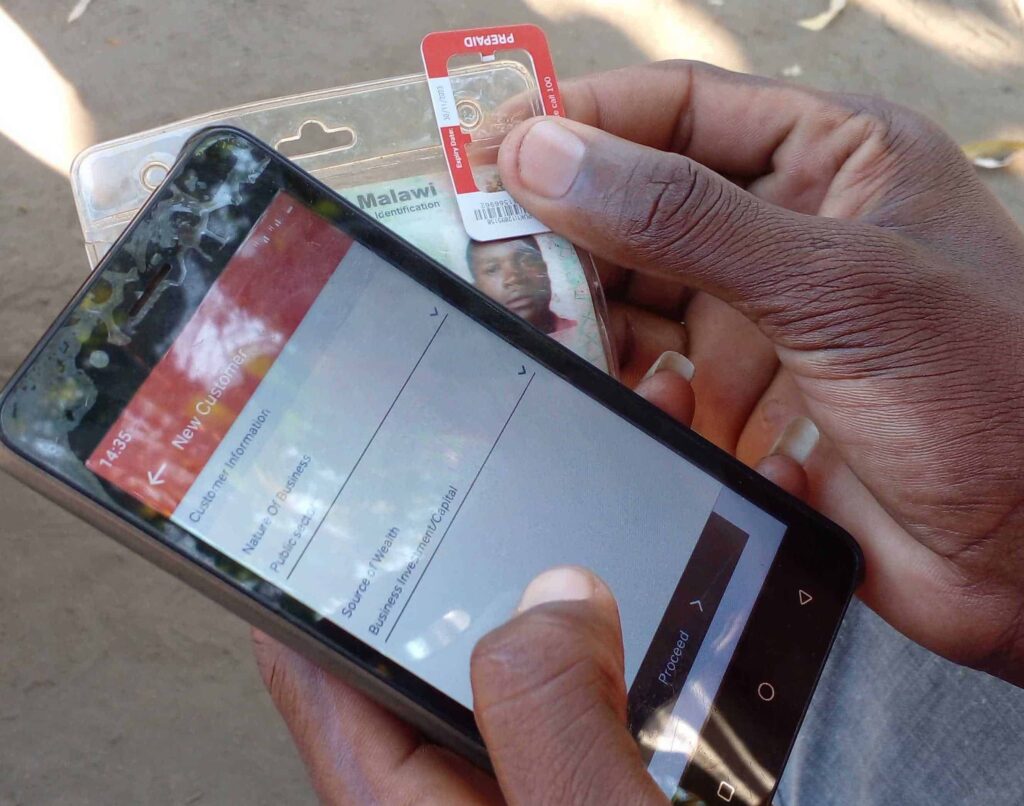
Combating Fraud in DRC
Earlier this year, we identified significant fraud in one of our programs in the DRC. While our investigation is ongoing, we currently calculate around $900,000 was stolen from our program in South Kivu Province over 6 months. This means, across the org, ~1.1% of the $146M we delivered last year was lost to fraud, compared to 0.23% in 2021. This fraud was only possible because of a specific change we made to our payment process to work in this remote, insecure region of the DRC.
Outcomes
We have taken immediate steps to prevent this type of fraud from happening again and are taking disciplinary and legal action against those involved. This includes further firewalling different departments to prevent collusion, implementing automated data checks org-wide that would allow us to detect such fraud more rapidly, and eliminating the SIM registration exception we made unless we make additional controls.
We also want the sector to learn from our mistakes. We will share the findings from our investigation with other organizations working in the D.R.C. to help them avoid similar failure points.
Impact Stories
Climate survivors innovated with cash
“I wanted to move away but couldn’t find the money, so when I received the money I was really grateful. I will buy land somewhere safe and build a house.” – William in Uganda
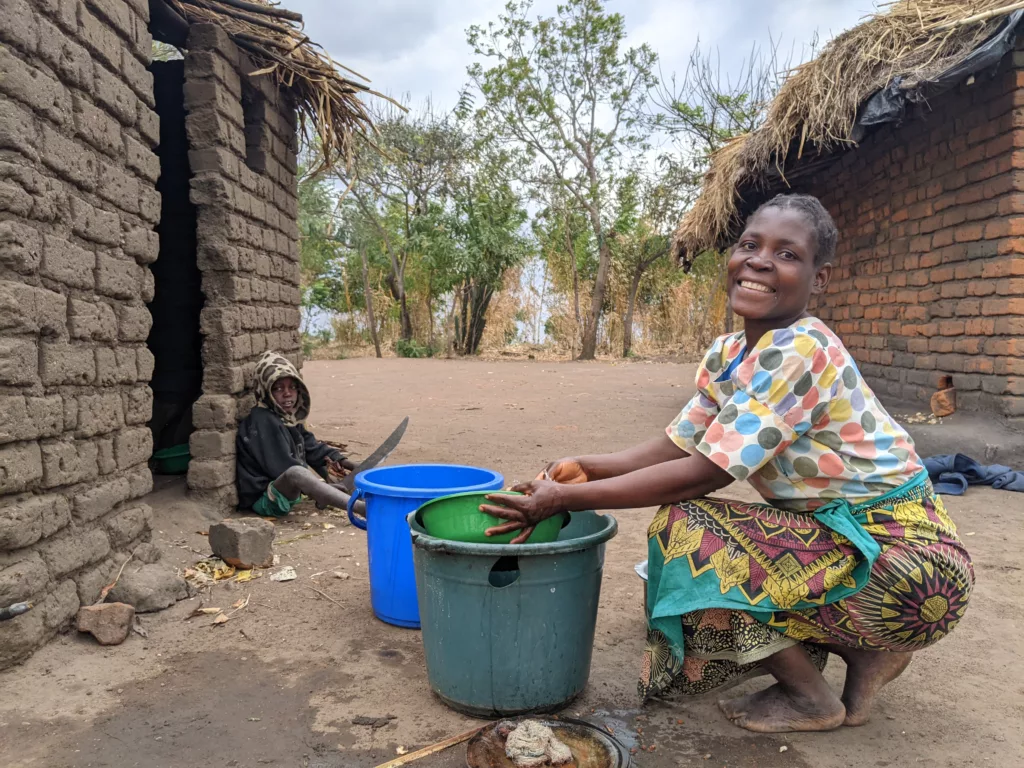
Esime bought food and invested in farming
“Receiving my first cash transfer from GiveDirectly was like a ray of sunshine breaking through the clouds of our difficult life. My household had been struggling to afford food, and it often felt like a constant sacrifice, especially for my husband and me.”
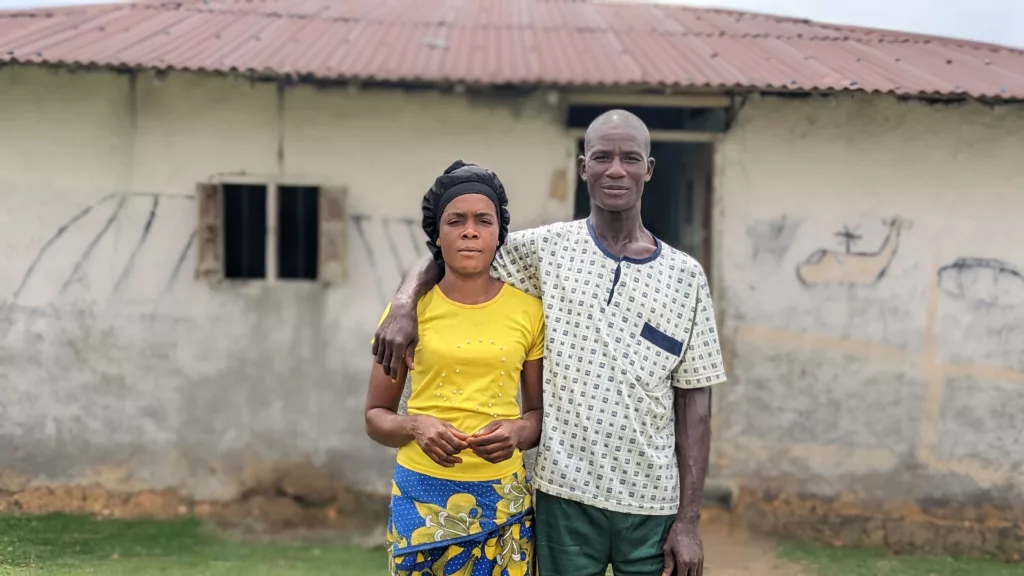
Comfort and Pascal covered school fees and bought land
“With my living condition, I’ve been worried, leading me to weight loss. So, when GiveDirectly finally arrived here, I was one of those who was very happy! After cashing out my first transfer, I purchased a 25kg bag of rice for $17. I used $27 towards my children’s tuition fees, and I paid $27 towards a $250 lot that I’m purchasing.”
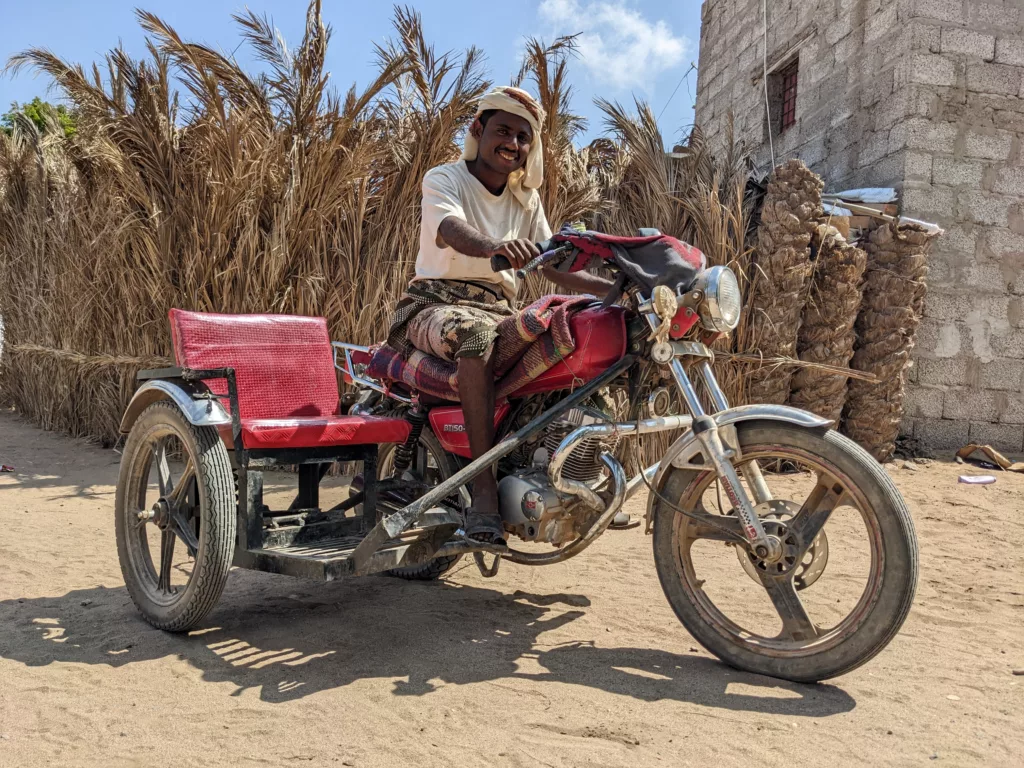
Yehia started a moto-taxi business
“I am displaced from the Yemen war in Al Dayani camp without job opportunities or income. So when I received the first payment, I was able to secure food for my family and pay my debts. I used the second and third payments to obtain legal licenses so that I could transport passengers within the city, to be my daily source of income.”
Climate survivors innovated with cash
“I wanted to move away but couldn’t find the money, so when I received the money I was really grateful. I will buy land somewhere safe and build a house.” – William in Uganda

Esime bought food and invested in farming
“Receiving my first cash transfer from GiveDirectly was like a ray of sunshine breaking through the clouds of our difficult life. My household had been struggling to afford food, and it often felt like a constant sacrifice, especially for my husband and me.”

Comfort and Pascal covered school fees and bought land
“With my living condition, I’ve been worried, leading me to weight loss. So, when GiveDirectly finally arrived here, I was one of those who was very happy! After cashing out my first transfer, I purchased a 25kg bag of rice for $17. I used $27 towards my children’s tuition fees, and I paid $27 towards a $250 lot that I’m purchasing.”

Yehia started a moto-taxi business
“I am displaced from the Yemen war in Al Dayani camp without job opportunities or income. So when I received the first payment, I was able to secure food for my family and pay my debts. I used the second and third payments to obtain legal licenses so that I could transport passengers within the city, to be my daily source of income.”
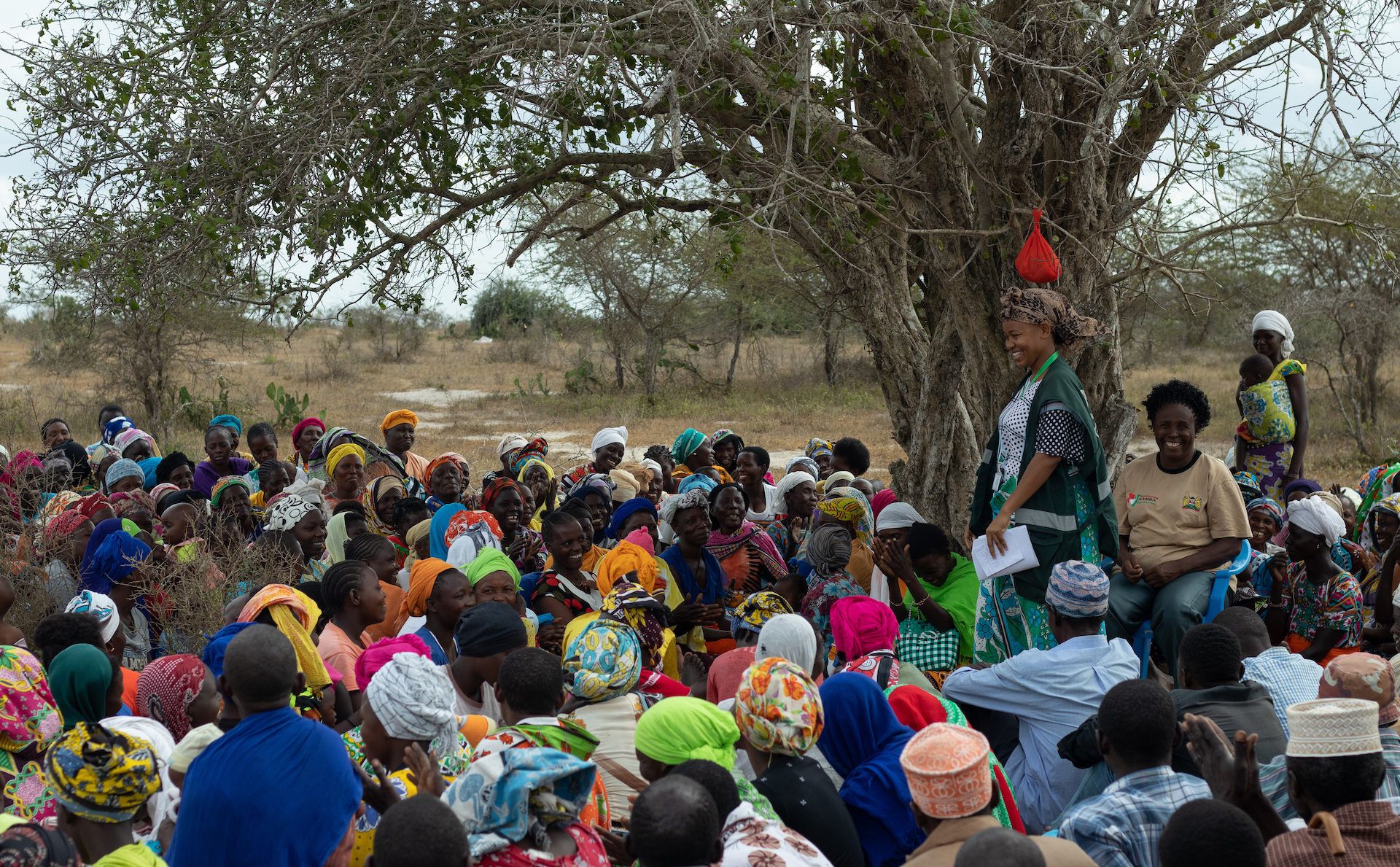
We have 3 focus areas for 2024:
- Execute our largest demonstration projects yet in collaboration with governments
- Invest in technology that will help us rapidly, efficiently, and safely scale cash programs
- Run targeted projects to demonstrate unique applications of cash and unlock institutional funding (e.g. climate adaptation, refugees etc)

